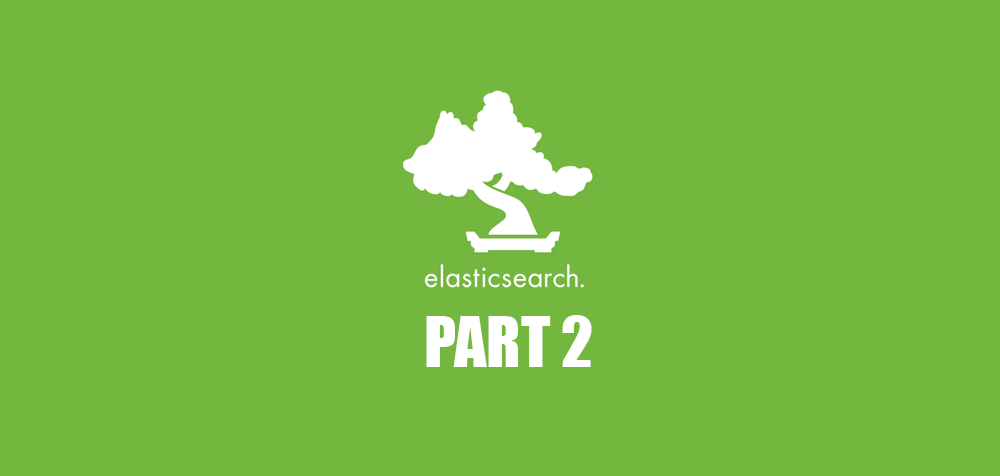Multi-model searching using Elasticsearch vol. 2

In the previous post we saw how to install Elasticsearch and import data needed for searching. We also set up basic searching for the User and House models. In the next post we will see how to improve searching intelligence, but right now let’s take care of the main part of our functionality - multi model searching.
This a part of a three post series:

TL;DR
I've created a sample app which is a foundation for my blogposts. If you already are familiar with Elasticsearch you can check it out right away. It's a complete demo with some complex searching using nGrams.
Multi-model searching
The elasticserch-model gem provides an easy way to search within multiple models:
Elasticsearch::Model.search(query_to_search, [User, House])
As you can see the search method needs 2 arguments: your query to search by and an array of models. So without further ado let’s create a service object which will be responsible for searching:
class Autocompleter < Struct.new(:query)
MODELS_TO_SEARCH = [User, House]
def self.call(query)
new(query).call
end
def call
results.map do |result|
{
hint: build_hint(result),
record_type: result.class.name,
record_id: result.id
}
end
end
private
def results
Elasticsearch::Model.search(query, MODELS_TO_SEARCH).records
end
def build_hint(record)
case record.class.to_s
when "User" then "Name: #{record.name}, City: #{record.city}"
when "House" then "City: #{record.city}, Info: #{record.information}"
end
end
end
Calling Autocompleter.call(“query”) will return an array of hashes with matched data from both models. If you are building some kind of form where user will be able to select some records you basically can return 3 things from each result:
- Record type to know what kind of record user selected
- Record id to know which record of given type user selected
- Some kind of text describing given record which will be shown to a user. Let’s assume that right now it should contain the most important columns from both models, like:
column_name: value, etc.. For example for User -Name: “Dawid”, City: “Bialystok”
Presenting results
So let’s stop for a while and talk about possible solutions for creating the description in the build_hint method:
- Right now it just uses a
caseconditional and returns specific text for given class
def build_hint(record)
case record.class.to_s
when "User" then "Name: #{record.name}, City: #{record.city}"
when "House" then "City: #{record.city}, Info: #{record.information}"
end
end
It just doesn’t feel right. It is polluting the Autocompleter class with the knowledge of how to present results, it would be difficult to test in isolation and with some possible changes in the future in can look even worse.
- You could write some specific method in each model or even overwrite the
to_smethod. It looks like a better solution, but such method in a class tends to be overused later. What if you think you are doing a good job and use it in some other place? Then changing the way we present search results would also affect different place in our app. Also it looks like moving too much logic to a model and can introduce the god object anti-pattern. - So what is the best way to get rid of conditionals? Let’s use polymorphism. So the
build_hintmethod will only delegate it to another service object, which is responsible only for presenting results. Here’s the whole implementation:
# In Autocompleter
def build_hint(record)
BuildHint.call(record)
end
class BuildHint < Struct.new(:record)
def self.call(record)
new(record).call
end
def call
result_builder.autocomplete_hint
end
private
def result_builder
"#{record.class}ResultBuilder".constantize.new(record)
end
end
class ResultBuilderBase
def initialize(record)
@record = record
end
private
attr_reader :record
end
class HouseResultBuilder < ResultBuilderBase
def autocomplete_hint
"City: #{record.city}, Info: #{record.information}"
end
end
class UserResultBuilder < ResultBuilderBase
def autocomplete_hint
"Name: #{record.name}, City: #{record.city}"
end
end
I really like this solution. Couple of small classes that are easy to read, understand and most important part is that they are easy to test and change in the future without affecting anything else.
Searching examples
As in the previous post let’s create some data:
User.create(name: "John Doe", city: "San Francisco")
User.create(name: "John Rambo", city: "New York")
House.create(city: "New York", information: "Rambo’s house")
House.create(city: "Los Angeles", information: "Large villa")
And now it’s time to see how it works:
Autocompleter.call("rambo")
=> [{:hint=>"City: New York, Info: Rambo’s house", :record_type=>"House", :record_id=>12},
{:hint=>"Name: John Rambo, City: New York", :record_type=>"User", :record_id=>16}]
Autocompleter.call("john")
=> [{:hint=>"Name: John Rambo, City: New York", :record_type=>"User", :record_id=>16},
{:hint=>"Name: John Doe, City: San Francisco", :record_type=>"User", :record_id=>14}]
Autocompleter.call("new york")
=> [{:hint=>"City: New York, Info: Rambo’s house", :record_type=>"House", :record_id=>12},
{:hint=>"Name: John Rambo, City: New York", :record_type=>"User", :record_id=>16}]
Pretty cool, right? Seems like everything is working as expected.
Wrapping up
The most important functionality is already there. By now we got Elasticsearch running, importing data automatically after each record update and made a multi-model search. In the next post I’ll show you how you can improve the searching intelligence by specifying custom analyzers when indexing and searching. Stay tuned and thanks for reading.
